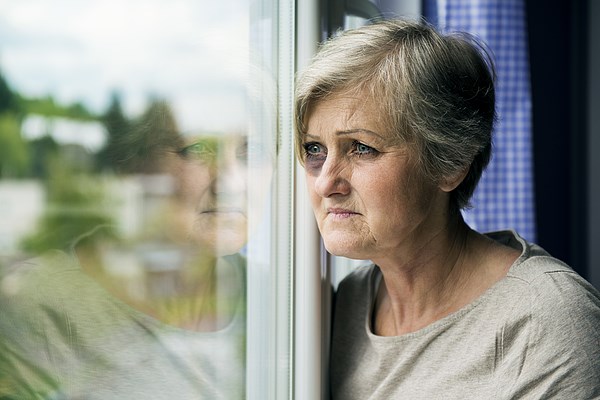June 15 is a day when people around the world attempt to shine a spotlight on the abuse faced by older adults.
Alison Silgardo, CEO of the Seniors Services Society, was in city council chambers on June 12 to accept the city’s proclamation of June 15 as World Elder Abuse Awareness Day.
“It is the day that is recognized globally to acknowledge the significance of elder abuse as a public health and a human rights issue,” she said. “As we age, we often face stereotyping, prejudice and discrimination because of age.”
Silgardo said that often erodes older adults’ confidence – and often serves as a justification for abuse.
“The Ministry of Health in B.C. reports that as many as 10 per cent of B.C. seniors will experience some form of abuse in their later years,” she said. “And one out of 12 seniors will experience financial abuse by close family members and trusted friends.”
Silgardo spoke on behalf of the New West-based Seniors Services Society of B.C., as well as the New Westminster Community Response Network, which works to raise awareness about elder abuse issues.
Silgardo shared the story of “Elizabeth” as an example of the types of situations seen by folks at the Seniors Services Society.
“Elizabeth was referred to us a few weeks ago to help with housing,” she said. “She's 72 years old and has lived with her daughter and son-in-law for just over six years. Her daughter persuaded her to sign a power of attorney, and following that she took away her ID and access to bank accounts and claimed that she was no longer capable of making and managing her own affairs.”
Silgardo said Elizabeth was “fortunately” taken to hospital for some blood tests, and while there, she had some cognitive testing done.
“The results showed that without a doubt, Elizabeth was totally capable of managing her affairs and showed no signs of dementia or deterioration,” she told council. “Elizabeth did not want to go back home, and reached out. She was sent to a safe house where, with the help of workers and police, she was able to get back her ID and her bank account, and is now finding a place to live independently. Elizabeth was being financially, psychologically and physically abused by her daughter and son in law.”
Noting that New Westminster is an age-friendly city, Silgardo said the society is grateful for the support it receives from the city and the community.
“However, elder abuse is alive and well, and it shows no signs of slowing down,” she said. “This World Elder Abuse Awareness Day, we would like to ask for your help to let us know what's working and what is not working in our city with regards to elder abuse. What else can we do together to shape an environment that does not tolerate elder abuse? And how can we make elder abuse prevention a priority to educate everyone in New West to learn and recognize the signs?”
The City of New Westminster’s proclamation states that the World Health Organization and the International Network for Prevention of Elder Abuse established World Elder Abuse Awareness Day in 2006, a day that aims to promote a better understanding of the abuse and neglect of older adults.
“Abuse of older adults is an ever-increasing issue in our society that crosses all cultures and socio-economic boundaries,” said the proclamation. “Ageism and social isolation are major causes of elder abuses.”
According to the proclamation, preventing the abuse of older adults through maintaining and improving social supports like strengthening intergenerational connections, digital literacy and inclusion, transportation and affordable housing will allow older adults to continue to live as independently as possible and contribute to the life and vibrancy of the city.
Coun. Jaimie McEvoy said the pandemic highlighted society’s attitudes towards older people. He referred to a report by the Canadian Armed Forces, which highlighted some of the conditions that seniors experienced in long-term care facilities in Ontario.
“That time period, what we went through, really hit home for me – the lack of support that some seniors experience, and the need to really be proactive with support and advocacy,” he said.
Coun. Daniel Fontaine once served on the province’s Council to Reduce Elder Abuse.
“I used to work at the BC Care providers Association and heard just so many horrific stories of seniors who were in their own homes who were being both physically abused, mentally abused, financially abused,” he said. “And it's happening is still happening today, so I'm so glad that you're raising that. And hopefully, we will get to a day where we don't need the presentations.”
Harwinder Sandhu, B.C.’s parliamentary secretary for seniors' services and long-term care, said people across British Columbia share a duty to protect seniors.
"Today and every day, senior abuse is unacceptable,” he said in a news release. “It threatens the quality of life that our family, friends and neighbours deserve. Together, let's raise awareness of this issue and take action to safeguard their quality of life by preventing abuse, and let's make seniors' safety our priority."
Anyone who is in an emergency situation should call 911. Anyone wishing to talk to a trained intake worker about abuse or mistreatment can call the Seniors Abuse and Information Line (SAIL) at 1-866-437-1940.




